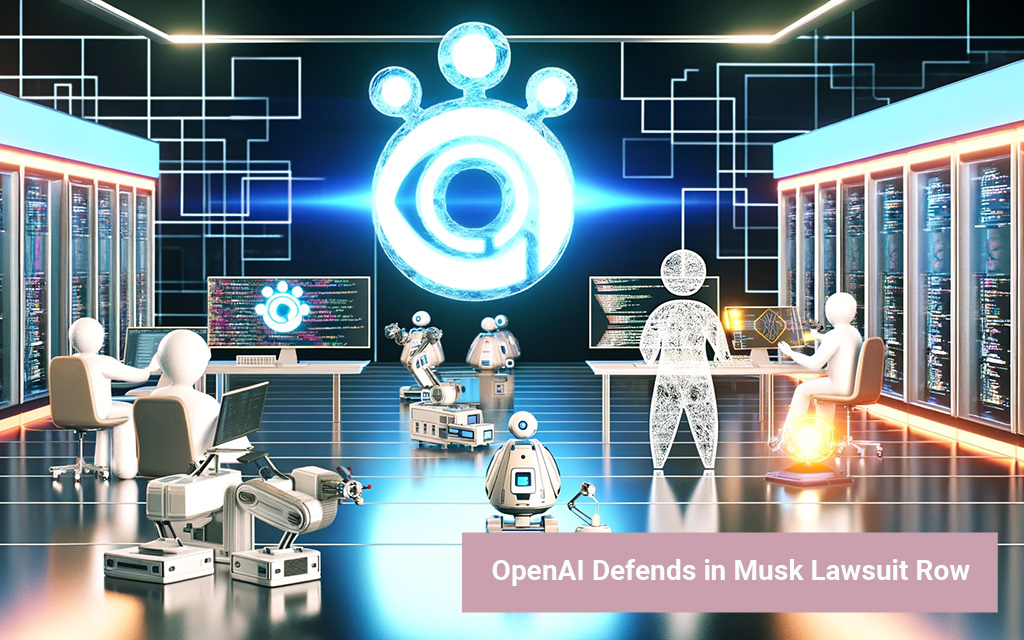Table of Contents
The recent history of A.I. has been marked by intense competition among leading tech companies. Powerful figures such as Sam Altman, Elon Musk, and Larry Page have been at the forefront of developing A.I. systems. Despite concerns over the potential dangers of A.I., these leaders have been driven to create it, believing that they have the ability to prevent A.I. from becoming a threat to humanity. This competition has led to the formation of several A.I. labs, pushing the advancement of A.I. technologies even further. One notable breakthrough in the industry has been OpenAI’s ChatGPT, a highly popular chatbot that has fueled the race among big tech companies like Google and Meta to release their own A.I. products into the market.
The Future of Artificial Intelligence
The future of artificial intelligence (A.I.) holds great promise, with fierce competition in the A.I. market and the development of cutting-edge solutions. Industry leaders are pushing the boundaries of what A.I. can achieve, paving the way for groundbreaking advancements. As A.I. continues to evolve, it is becoming increasingly integrated into various aspects of daily life, from chatbots and image generators to customer service agents.
A.I. has already demonstrated its capabilities in different domains, with both positive and negative implications. However, it represents just the beginning of what is to come. The market is brimming with competition as leading companies vie for dominance, constantly striving to outdo each other and cultivate innovative approaches to A.I. technology. The future of artificial intelligence is set to be shaped by these ongoing advancements and the emergence of new players in the industry.
Transforming Industries
The future of artificial intelligence holds immense potential to revolutionize various industries, transforming the way we live and work. For example, in healthcare, A.I. systems can analyze vast amounts of medical data to help doctors make more accurate diagnoses and suggest personalized treatment plans. In transportation, self-driving cars powered by A.I. algorithms may soon become a common sight on our roads. And in finance, A.I. can improve fraud detection and enhance investment strategies.
Addressing Ethical Considerations
As A.I. continues to evolve and permeate all aspects of society, it is crucial to address ethical considerations and ensure responsible development. The potential risks and challenges of A.I., such as privacy breaches and algorithmic bias, need to be addressed proactively. Robust regulations must be implemented to safeguard against potential negative impacts and ensure that A.I. technologies are developed and deployed in a manner that benefits humanity as a whole.
Collaboration and Innovation
The future of artificial intelligence relies on collaboration and innovation. As competition in the A.I. market intensifies, industry leaders must foster a culture of collaboration, working together to overcome challenges and propel the field forward. Collaboration between experts from diverse backgrounds can drive innovation and unlock new possibilities, ensuring that the future of artificial intelligence is shaped by collective expertise and shared aspirations for a better world.
Strategies for A.I. Dominance
In the race to dominate A.I., companies are employing various strategies to stay ahead. OpenAI, for example, transformed from a non-profit to a commercial operation valued at over £80 billion. The lack of meaningful oversight in the A.I. industry has allowed companies to prioritize speed over safety, as demonstrated by Google’s recent demonstration of its powerful A.I. system, Gemini Ultra, without completing safety testing.
However, there is a growing need for regulations to address the rapidly evolving nature of A.I. technologies. European regulators are currently working on the world’s strictest A.I. regulations, which could have a significant impact on the industry. The introduction of these regulations aims to ensure ethical and responsible use of A.I., protecting consumers and society from potential harm.
As the A.I. market continues to evolve, staying abreast of market trends and embracing innovative strategies will be crucial for companies aiming to dominate the A.I. landscape. Investing in research and development to advance A.I. capabilities, and fostering partnerships with academia and other industry players, can provide a competitive edge. Additionally, companies must prioritize data privacy and security to build trust with users, as concerns about the misuse of personal data continue to grow.
To maintain a strong foothold in the A.I. market, companies must also focus on talent acquisition and retention. The demand for skilled professionals in A.I. is high, and companies need to attract top talent to drive innovation and maintain their competitive advantage. Furthermore, nurturing a culture of continuous learning and experimentation can foster creativity and push the boundaries of what A.I. can achieve.
FAQ
What has been the recent history of A.I. development?
The recent history of A.I. has been marked by intense competition among leading tech companies, driven by figures such as Sam Altman, Elon Musk, and Larry Page. They have been at the forefront of developing A.I. systems and believe they can prevent A.I. from becoming a threat to humanity.
What is ChatGPT and how has it impacted the A.I. industry?
ChatGPT is a highly popular chatbot developed by OpenAI. Its success has fueled the race among big tech companies like Google and Meta to release their own A.I. products into the market.
What is the future of artificial intelligence?
The future of artificial intelligence looks promising, with continued market competition and the development of cutting-edge A.I. solutions. Industry leaders are pushing the boundaries of what A.I. can achieve, and its integration in daily life is expected to increase.
How has A.I. been used in various fields?
A.I. has already been used for various purposes, including creating sophisticated phishing emails, cheating on schoolwork, and spreading disinformation.
What strategies are companies employing to dominate A.I.?
Companies are employing various strategies to stay ahead, such as transforming from nonprofit to commercial operations and prioritizing speed over safety. Staying abreast of market trends and embracing innovative strategies are crucial for dominating the A.I. landscape.
Are there regulations in place for the A.I. industry?
There is a growing need for regulations to address the rapidly evolving nature of A.I. technologies. European regulators are currently working on the world’s strictest A.I. regulations, which could have a significant impact on the industry.













